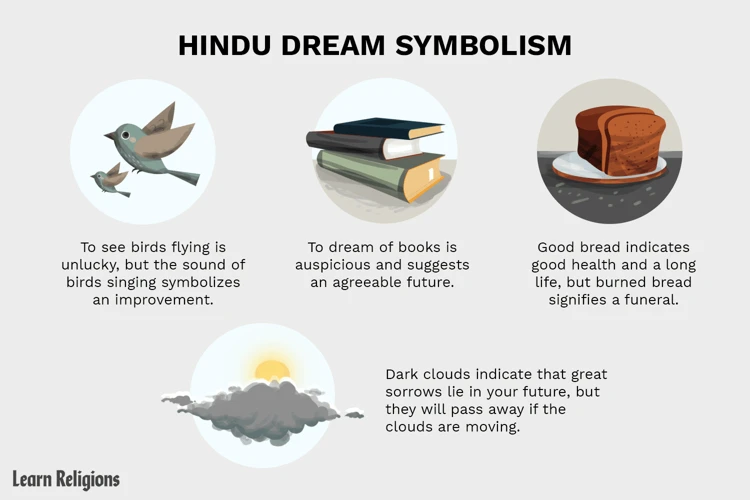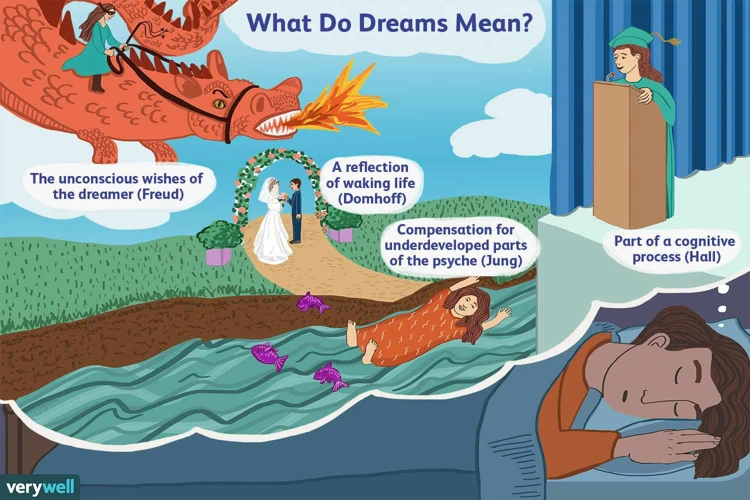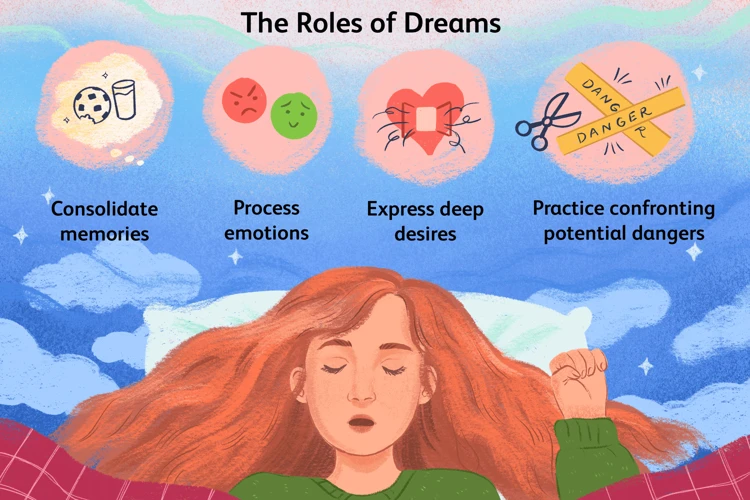If you’ve ever found yourself waking up in a cold sweat after witnessing a murder in your dream, you’re not alone. Dreaming about murder can be a perplexing and unsettling experience, leaving you with a lingering sense of unease. But what does it all mean? In this article, we will delve into the intricate world of dreams and explore the significance of witnessing murders in your dreams. By unraveling the symbolism and psychology behind these dreams, we aim to shed light on the hidden messages and emotions that may be lurking within your subconscious mind. So, grab a cup of coffee and get ready to unlock the secrets of your nighttime adventures.
Understanding Dreams

Dreams are enigmatic and intriguing phenomena that occur during our sleep. These nocturnal visions can range from mundane to fantastical, leaving us bewildered and fascinated. Dreams have been studied and contemplated by psychologists, scientists, and philosophers for centuries, yet their true nature remains shrouded in mystery. While the purpose and meaning of dreams continue to elude us, they serve as a window into our subconscious mind, providing glimpses of our deepest desires, fears, and emotions. Whether vivid or hazy, dreams offer a unique opportunity for self-reflection and exploration, allowing us to unravel the complexities of our innermost thoughts and experiences. As we delve into the realm of dreams, we embark on a journey of self-discovery, interpreting their symbolisms and deciphering the messages they hold.
What are dreams?
Dreams are extraordinary experiences that occur during the sleep cycle. They are a series of images, sensations, and emotions that manifest in our minds, creating a unique landscape for exploration and interpretation. While their precise origins and purpose remain a subject of debate among experts, dreams are believed to be a reflection of our subconscious mind – a gateway to our deepest thoughts and desires. Dreams can range from mundane to surreal, from joyful to terrifying, and their content can be influenced by various factors such as past experiences, current emotions, and personal beliefs. While the true essence of dreams may remain elusive, they continue to captivate and intrigue us, providing a fascinating glimpse into the workings of our inner selves.
Why do we dream?
The question of why we dream has captivated the minds of countless individuals throughout history. While the exact purpose and meaning of dreams remain elusive, experts have proposed several theories. Some suggest that dreams serve as a way for our brains to process and consolidate information, memories, and emotions from the day. Others believe that dreams are a form of wish fulfillment or a means for our subconscious mind to communicate with us. Additionally, dreams may provide a platform for problem-solving, creativity, and exploring unresolved conflicts. The truth is, the true nature and purpose of dreams may vary from person to person, making them a fascinating and individualized experience.
Dream Symbolism

Dreams are composed of a myriad of symbols, each carrying its own unique meaning and significance. These symbols serve as a language of the subconscious, conveying messages and emotions that may be difficult to express in our waking lives. Dream symbol interpretation is a complex endeavor, requiring us to tap into our intuition and delve into the depths of our psyche. Some symbols, such as animals or natural elements, hold universal meanings across cultures, while others may be deeply personal and rooted in our individual experiences. To navigate the intricacies of dream symbolism, it can be helpful to keep a dream journal or engage in self-reflection to identify recurring patterns or themes. By deciphering the symbols that appear in our dreams, we can unravel hidden truths, gain insight into our subconscious desires and fears, and embark on a journey of self-understanding.
Interpreting dream symbols
Interpreting dream symbols plays a crucial role in understanding the hidden meanings within our dreams. These symbols can vary greatly, and their significance may differ from person to person. Symbolism in dreams can be subjective, influenced by personal experiences, cultural backgrounds, and individual beliefs. To interpret dream symbols effectively, it is essential to consider the context of the dream, the emotions involved, and any recurring themes or patterns. Keeping a dream journal can be helpful in identifying common symbols and their associated feelings. Additionally, exploring the metaphorical and abstract aspects of dream symbols can provide deeper insights into our subconscious thoughts and desires.
Common dream symbols
Common dream symbols can vary greatly depending on an individual’s personal experiences, cultural background, and beliefs. However, there are some common dream symbols that tend to appear across different people’s dreams. These symbols often carry universal meanings and can provide valuable insights into our subconscious mind. Some of the most common dream symbols include:
– Falling: Falling in a dream can symbolize a loss of control, insecurities, or a fear of failure.
– Being chased: Being chased in a dream may represent avoidance or running away from a problem or fear in waking life.
– Teeth falling out: This dream symbol often represents insecurities about one’s appearance or communication difficulties.
– Flying: Flying in a dream can symbolize a sense of freedom, empowerment, or escape from limitations.
– Nudity: Dreams of being naked or exposed can reflect vulnerability, self-consciousness, or a desire for authenticity.
It is important to note that dream symbols can have different interpretations based on the context of the dream and the individual’s unique circumstances. Keeping a dream journal and reflecting on the emotions and details of dreams can help uncover the personal significance of these symbols.
Meaning of Witnessing Murders

Witnessing murders in dreams can be a haunting experience, leaving us with a sense of shock and dread upon awakening. These disturbing dream scenarios carry deep symbolic meaning, often reflecting aspects of our inner psyche and emotions. Murders in dreams may not necessarily represent literal acts of violence, but instead symbolize the ending or transformation of certain aspects of our lives. They can be indicative of the need to release or let go of certain relationships, habits, or beliefs that are no longer serving us. These dreams may also arise during times of intense stress or emotional turmoil, acting as a manifestation of our anxieties and fears. By exploring the symbolic interpretation and psychological analysis of witnessing murders in dreams, we can gain insight into our subconscious mind and better understand our own inner workings.
Overview of witnessing murders in dreams
– Witnessing murders in dreams is a common and recurring theme that can evoke intense emotions and leave a lasting impact on the dreamer.
– The act of witnessing a murder in a dream can vary in intensity, ranging from simply observing the scene to being actively involved in the events.
– These dreams often feel vivid and realistic, causing fear, unease, and sometimes even trauma upon waking.
– The details surrounding the murder, such as the location, the victim, and the perpetrator, can provide clues to the underlying meaning of the dream.
– It is important to note that dreaming about witnessing a murder does not necessarily indicate a future act of violence or harm in real life.
– Instead, these dreams symbolize deeper psychological and emotional aspects that are worth exploring and understanding.
Symbolic interpretation
Symbolic interpretation of witnessing murders in dreams involves understanding the deeper meaning behind the violent act. In the realm of dreams, murders often symbolize the death of something old or the end of a certain phase in life. It can represent the need for transformation, letting go of the past, or making significant changes in one’s own behavior or mindset to progress and grow. The specific details and contexts of the dream, such as the location, people involved, or any accompanying emotions, can provide additional insights into the symbolic interpretation. Exploring these symbols can unlock a wealth of personal understanding and help individuals navigate their waking life with clarity and purpose.
Psychological analysis
plays a crucial role in understanding the significance of witnessing murders in dreams. When it comes to dream interpretation, psychologists delve into the deep recesses of the mind to uncover underlying emotions, conflicts, and unresolved issues that may be manifesting through these intense and often disturbing dreams. By examining the symbolism, context, and personal experiences of the dreamer, psychologists can provide valuable insights into the psychological implications of witnessing murders in dreams. Dreams of murder may represent repressed aggression, deep-seated fears, or a need for power and control. Additionally, they can be a reflection of the dreamer’s anxieties, traumas, or unresolved conflicts in their waking life. Through psychological analysis, individuals can gain a better understanding of their inner workings and begin the process of healing and self-discovery.
Exploring Possible Explanations

When it comes to witnessing murders in dreams, there are several possible explanations to consider. One factor to explore is past experiences and traumas. The mind has a way of processing unresolved emotions through dreams, and witnessing a murder could be a manifestation of a past traumatic event or an intense fear that has been buried deep within the subconscious. Another potential explanation lies in unresolved conflicts, whether they are internal or external. Dreams often serve as a platform for the mind to work through unresolved issues, and witnessing a murder could symbolize a conflict that needs to be addressed and resolved. Additionally, inner fears and anxieties may play a role in these dreams. The fear of losing control or being victimized can manifest in the form of witnessing a murder. By exploring these possible explanations, we can begin to understand the underlying significance of these unsettling dreams and take steps towards finding resolution and peace.
Past experiences and traumas
There is a strong correlation between witnessing murders in dreams and past experiences or traumas that an individual may have encountered in their waking life. can leave deep imprints on our subconscious mind, and these unresolved emotions often manifest themselves in our dreams. Witnessing a murder in a dream may symbolize a traumatic event or a significant loss that has not been properly processed or healed. The vivid nature of the dream serves as a subconscious reminder of these unresolved issues, urging us to confront and come to terms with our past traumas. It is essential to acknowledge and seek support to address these underlying experiences, as they can have a profound impact on our well-being. Whether through therapy, counseling, or self-reflection, exploring these past experiences and traumas can help to alleviate the intensity and frequency of unsettling dreams.
Unresolved conflicts
Unresolved conflicts can manifest in our dreams, including witnessing murders, as a reflection of unresolved issues and tensions in our waking life. These conflicts can be interpersonal, such as unresolved arguments or disagreements with loved ones. They can also be internal conflicts, such as grappling with difficult decisions or unresolved guilt. Dreams about witnessing murders may symbolize the need to confront these conflicts head-on and find resolution. These dreams serve as a reminder that there are underlying issues that require attention and resolution for our peace of mind and emotional well-being. By addressing and working through these conflicts in our waking life, we can potentially reduce their manifestation in our dreams and achieve a sense of closure and harmony.
Inner fears and anxieties
– Facing fears: Witnessing murders in dreams may be a reflection of our deeply rooted fears and anxieties. It could be a symbolic representation of the fears we have not yet confronted in our waking lives. These fears may vary from person to person and could include fears of failure, rejection, or even the fear of losing control.
– Unresolved traumas: Dreams have a way of bringing unresolved traumas to the surface, and witnessing murders in dreams could be a manifestation of past traumatic experiences. These dreams may serve as a reminder that there are unresolved emotional wounds that need to be addressed and healed.
– Subconscious worries: Our dreams often act as a canvas for our subconscious mind to work through worries and concerns we may not be consciously aware of. Witnessing murders in dreams may be an indication of underlying stress, anxiety, or feelings of vulnerability that are present in our daily lives.
– Deep-seated emotions: Dreams have a way of tapping into our deepest emotions, and witnessing murders could be a symbol for intense emotions such as anger, resentment, or fear that we may be suppressing or ignoring in our waking lives.
It’s important to remember that dreams are highly personal and can have different meanings for each individual. If these dreams continue to cause distress or significantly impact your daily life, it may be helpful to seek professional guidance to better understand and address the underlying fears and anxieties they may represent.
Reflection and Self-Analysis

Reflection and self-analysis play a pivotal role in understanding the significance of witnessing murders in your dreams. Taking the time to reflect upon your dreams and analyze their possible meanings can provide valuable insights into your subconscious mind. One effective method is to examine your personal emotions and thoughts that were evoked during the dream. Were you terrified, fascinated, or indifferent? Identifying these emotions can help uncover underlying fears, unresolved conflicts, or even past traumas. Another important aspect of self-analysis is identifying recurring patterns in your dreams. Do you frequently have dreams involving violence or witnessing murders? These patterns could indicate deeper psychological or emotional issues that may require attention and resolution. By engaging in regular reflection and self-analysis, you can embark on a journey of self-discovery and gain a better understanding of yourself and the messages your dreams are trying to convey.
Examining personal emotions and thoughts
Examining personal emotions and thoughts is a crucial step in understanding the significance of witnessing murders in dreams. When faced with such unsettling imagery, it is important to delve deeper into our own emotional landscape and analyze the feelings that arise during and after these dreams. Self-reflection and introspection can help uncover any underlying emotions or unresolved issues that may be manifesting in the form of witnessing murders. By exploring our personal experiences, fears, and anxieties, we can gain valuable insights into the deeper meanings and messages behind these dreams. It is essential to approach this examination with an open mind and a willingness to explore the complexities of our own psyche.
Identifying recurring patterns
Identifying recurring patterns in your dreams can provide valuable insights into your subconscious mind. By paying close attention to the themes, symbols, and emotions that frequently occur in your dreams, you can begin to unravel recurring patterns that may hold significance in your waking life. These patterns may reveal underlying fears, unresolved conflicts, or desires that your subconscious mind is trying to bring to your attention. Keeping a dream journal and documenting these recurring elements can help you spot connections and patterns over time. Additionally, reflecting on the feelings and thoughts evoked by these patterns can provide further understanding and clarity. The process of identifying recurring patterns empowers you to gain a deeper understanding of yourself and take steps towards personal growth and transformation.
Coping Strategies
When it comes to coping with unsettling dreams, it’s important to have strategies in place to help navigate the emotions and symbolism they bring forth. One effective method is to maintain a dream journal, where you can record and analyze your dreams on a regular basis. This practice allows you to gain insights into recurring patterns, symbols, and themes, helping you to better understand the meaning behind them. Another approach is to embrace the symbolism and metaphors present in your dreams. By exploring the deeper significance of the elements within your dreams, you can extract valuable messages and insights that may aid in your personal growth and self-reflection. Finally, don’t hesitate to seek professional help if your dreams are causing significant distress or interfering with your daily life. A therapist or dream analyst can provide guidance and support as you navigate your dream experiences and work through any underlying psychological issues they may reveal. Remember, coping with dreams involves patience, curiosity, and a willingness to explore the hidden depths of your subconscious mind.
Maintaining a dream journal
One effective strategy for exploring the meaning of witnessing murders in your dreams is to maintain a dream journal. By keeping a record of your dreams, you can gain valuable insights into recurring themes, symbols, and emotions present in your subconscious mind. In your dream journal, jot down the details of your dreams, including the setting, characters, emotions, and any specific symbols related to murder that you encounter. Regularly reviewing your dream journal can help you identify patterns or connections between different dreams, allowing you to piece together a broader understanding of their significance.
Embracing symbolism and metaphors
Embracing symbolism and metaphors is key to unlocking the deeper meanings behind witnessing murders in dreams. Dreams often speak to us through symbolic languages, using metaphors and imagery to convey messages that may not be immediately apparent. By exploring the symbolism within your dream, you can gain valuable insights into your subconscious thoughts and emotions. Pay attention to the details, such as the location, the weapons used, or the presence of specific individuals, as these can offer clues to the underlying themes and emotions at play. Don’t take everything at face value; instead, embrace the symbolic nature of your dream and allow your intuition to guide you in unraveling its significance.
Seeking professional help
- Therapy: Seeking the assistance of a professional therapist or counselor can be immensely beneficial when dealing with recurring dreams of witnessing murders. A trained therapist can provide a safe and supportive environment for you to express your concerns and explore the underlying emotional issues that may be contributing to these dreams. With their expertise, they can help you process and make sense of your dreams, as well as develop coping strategies to alleviate any distress they may cause.
- Dream analysis: Working with a dream analyst or psychologist who specializes in dream interpretation can provide valuable insights into the meaning behind your dreams. These experts can guide you through the symbolism and hidden messages within your dreams, helping you gain a deeper understanding of yourself and your subconscious mind. By dissecting the specifics of your dream, they can assist you in unraveling any unresolved conflicts or fears that may be manifesting through your dreams.
- Hypnotherapy: Hypnotherapy is another alternative for addressing the impact of witnessing murder dreams. A qualified hypnotherapist can guide you into a relaxed state of hypnosis, where you can explore your dreams more openly and tap into the subconscious mind. Through hypnotherapy, you may be able to uncover the root causes of your dreams and work on resolving any underlying issues that may be contributing to your dreams.
Conclusion
In conclusion, the significance of witnessing murders in your dreams goes beyond the literal act itself. It is important to remember that dream interpretation is subjective, and the meanings can vary greatly depending on the individual’s personal experiences and emotions. However, these dreams often serve as a reflection of our inner turmoil, fears, or unresolved conflicts. By reflecting on the symbolism and exploring possible explanations, we can gain valuable insights into our subconscious mind and use this knowledge to promote self-growth and healing. Whether through self-analysis, keeping a dream journal, or seeking professional help, it is crucial to approach these dreams with curiosity and an open mind. Embracing the power of dreams and their metaphorical language can ultimately lead to a deeper understanding of ourselves and our journey through life.
Frequently Asked Questions
What role do emotions play in dreams?
Emotions play a significant role in dreams, often influencing the content and intensity of the dream experience. They can reflect and amplify our emotional state while awake, as well as bring unresolved feelings or memories to the surface.
Can dreams predict the future?
While dreams can sometimes contain elements that appear to predict future events, it is generally believed that dreams are a reflection of our subconscious thoughts and emotions rather than a glimpse into the future. It is important to approach dream predictions with skepticism.
Do recurring dreams have specific meanings?
Recurring dreams may indicate unresolved issues or recurring patterns in our lives. They can serve as valuable clues for self-reflection and personal growth, highlighting areas that require attention or change.
Why do we forget most of our dreams?
Forgetting dreams is a common phenomenon due to the brain’s complex processes during sleep. The transition from a dream to wakefulness often causes the memory of the dream to fade quickly. Additionally, dreams may be less memorable if they do not elicit strong emotional responses.
Can traumatic experiences influence our dreams?
Yes, traumatic experiences can have a profound impact on dreams. They may manifest as nightmares or recurring themes in dreams, serving as a way for the mind to process and cope with the trauma.
Are there universal dream symbols?
While some symbols may have shared meanings across cultures, dream symbolism is highly subjective and personal. Symbols can vary based on an individual’s experiences, cultural background, and personal beliefs.
Can dreams provide insights into our subconscious mind?
Absolutely. Dreams offer a portal to our subconscious mind, allowing hidden thoughts, desires, and emotions to surface. Analyzing and interpreting dreams can provide valuable insights into our innermost thoughts and motivations.
How can lucid dreaming be achieved?
Lucid dreaming, where the dreamer becomes aware that they are dreaming, can be achieved through various techniques such as reality testing, keeping a dream journal, maintaining a consistent sleep schedule, and practicing mindfulness and meditation.
Do dreams have any physical effects on our bodies?
Though dreams are primarily mental experiences, they can have physical effects on our bodies. During REM sleep, the stage when most dreams occur, our bodies may experience physiological changes, such as increased heart rate, rapid eye movements, and changes in brain activity.
Can dreams be influenced by external factors?
Absolutely. External factors such as daily experiences, media consumption, stress levels, and even the foods we eat can influence the content and themes of our dreams. Paying attention to our surroundings and daily activities can provide insight into the origins of our dream imagery.








